Yair Hirschfeld was one of two Israeli academics (alongside the late Ron Pundak) who began unofficial and secret discussions with Palestinian officials in Oslo that led to the Declaration of Principles between Israel and the PLO. His book, Israel and the Middle East After Oslo: Hope or Despair, is due to be published in Hebrew in early 2019. In this clear-sighted and hopeful essay, based on the accumulated wisdom gained from talking to all the parties over more than two decades, Hirschfeld discusses the central argument of his book and sets out the five pillars of a successful peace process in the future. Israeli and international policy-makers stand to learn much from this voice, at once vastly experienced, hard headed and yet determinedly optimistic. Download a PDF version here.
I was inspired to write Israel and the Middle East After Oslo: Hope or Despair – and to suggest a comprehensive Israeli strategy for the challenges it faces – by conversations I had with my 19-year-old granddaughter Naama. Following Prime Minister Benjamin Netanyahu’s election victory in 2015, Naama was worried, believing that the absence of a peace process would mean Israel would become increasingly isolated. She felt that while my youth in post-war Vienna, following the victory over Nazi Germany and Israel’s War of Independence, had been hope-filled, her own youth – shadowed by the failure of the peace process, the Second Intifada, and wars in Gaza and Lebanon – has been one of pessimism. She felt her generation didn’t know where to go or how to get there.
In seeking to develop her own weltanschauung Naama has also been strongly influenced by her paternal grandparents. Her grandmother Judith grew up in Beitar, and her grandfather Zvi identifies politically with the Jewish Home Party. Our conversations were an attempt to try to create common ground between what she heard in the two different homes. I sought to explain that her grandparents’ generation had been decisively influenced by the Holocaust, which we felt provided us with two ‘commandments’. The first was never again to be defenseless, so we had to create the capacity to defend ourselves against any threat. The second was ‘Sei a Mensch’ i.e. ‘be a human being’ and to behave morally and correctly. I told Naama that all four of her grandparents are unanimously committed to these two basic principles.
Twenty five years after the Oslo Accords that I played a part in negotiating, and with Naama’s generation searching for a political direction, I believe that these two principles can continue to help guide Israel towards a stronger strategic position. In practical terms I believe they can be translated into five pillars, namely: upgrading and stabilising Israel’s alliance with the US on a long-term bipartisan basis; preventing further deterioration between Israel and Europe; stabilising and improving the volatile relationship between Israel and our Arab neighbours; overcoming the internal divide within Israel; and developing a functioning partnership with the Palestinian people. The last will be difficult but there are several components – first established during the Oslo Accords – that can help guide policymakers.
Underlying these pillars is the understanding that Israel’s security is not only built on the power of our armed forces, but on stable and functioning alliances with the US, Europe and relations with our neighbours, as well as on maintaining high moral standards. In practical terms this also means not occupying another people but instead searching – together with the Palestinians – for a way out of the present quagmire. Naama and I also felt that in combination these pillars can be self-reinforcing: an upgraded and stable alliance with the US and Europe strengthens Israel’s security; a more secure Israel can allow itself to build a moral and dignified relationship with the Palestinian people and with our Arab neighbours. Israel taking the higher moral grounds in a complex conflict reinforces our alliance relationship with the US, Europe and other powers, and enables a humane outreach to our neighbours.
Pillar 1: Strategic relations with the US
Israel needs a full strategic understanding with the US that is backed by both the Republicans and the Democrats. The bond between the two countries is strong. There is a large amount of cooperation between almost all echelons of the governmental agencies of both sides; and the Jewish Federations undertake most valuable work with and in Israel.
However, the growing internal divide within the US creates serious dangers for Israel, from both sides. For example, following one encounter with a right-wing Republican caucus – who all expressed strong feelings for Israel – the Jewish editor of The American Conservative said to me ‘Yair, do not trust these people. I grew up with them. They love Israel, as long as you make war with the Arabs and the Muslims, but not one minute longer.’ Meanwhile, on the democrat side, the hate for US President Donald Trump and his policies is so great that left-wing politicians who support the Palestinians unconditionally are obtaining leadership positions. What is needed is a serious strategic bi-partisan dialogue. In the past, almost every Israeli government negotiated a strategic Memorandum of Understanding (MOU) with the US, yet this hasn’t been done for over a decade. Such an MOU should be negotiated ‘across the aisle’ and an understanding reached together with the Republicans and Democrats.
Pillar 2: Israel’s relationship with Europe
Relations between Israel and Europe are far more problematic, and there is a chance that if Jeremy Corbyn becomes British Prime Minister then ‘Corbynism’ could spread throughout Europe. The EU seems overly eager to engage with Iran, despite its regional interference, military build-up, and aggressive rhetoric against Israel. At the same time there is a strong basis for cooperation. Angela Merkel’s 2008 speech to the Knesset emphasised both her commitment to Israel and many of the shared values between Germany and Israel (and by extension between Europe and Israel).
Merkel emphasised that ‘all of us, Germans and Israelis alike, and all the peoples of this world, are living through a period of dramatic change. The global order is being cast anew. Only a hair’s breadth separates great opportunities from significant risks … we need to look beyond national boundaries to create a global shared awareness of the key challenges facing our world – such as ensuring that prosperity is fairly distributed, protecting our climate, fighting the new threats posed by terrorism and weapons of mass destruction’. She concluded by reminding the Knesset that ‘Germany is a staunch advocate of the vision of two states in secure borders and in peace, for the Jewish people in Israel and for the Palestinians in Palestine’.
These ideas provide a solid basis for an intensive and extensive strategic dialogue between Israel and Europe. There are many substantial shared interests and without a serious strategic dialogue both sides will lose; although, undoubtedly Israel will be the greater loser.
Pillar 3: Israel’s relations with the Arab world
Long-term strategic understandings with the Arab and Muslim world are vital for Israel and there is today an opportunity to reach such understandings. The political leadership in Egypt, Jordan, Saudi Arabia, as well as in the United Arab Emirates, Bahrain and elsewhere is reaching out to us. They both need and want an accommodation with Israel, but a stable alliance cannot be achieved independently of an agreement with the Palestinians. Once, when touring Cairo with some Austrians, our guide compared President Anwar Sadat’s (cruel) peace agreement with Prime Minister Menachem Begin (which were considered a betrayal of the Palestinians), to the cruel act by King Farouk of he executed his gardener, the husband of one of his many lovers. In other words, there is no public legitimacy in these countries for close ties with Israel without an Israeli-Palestinian agreement. These states can neither ignore the Palestinian issue, nor impose a solution upon them. They can help when Israelis and Palestinians together ask for their support.
The Iranian coalition of Bashar Assad, Hezbollah and other Shia militias (and to a certain extent Hamas) also threatens the Sunni Arab states and helps us to build security and economic bonds with them. It opens an important opportunity to build a more stable relationship. But there is a danger Israel may miss this opportunity.
Despite being an important player in the Middle East, I don’t include Turkey in the potential Sunni alliance that Israel can forge. I have several personal relations with Turkish friends who were former senior members of government and in 2015-16, during official negotiations on a renewal of diplomatic relations, I was asked by the Israeli National Security Council to establish a Track Two dialogue with President Recep Erdogan’s Deputy Prime Minister, Numan Kurtulmus, to explore whether after an agreement, Erdogan would improve relations with Israel. Following discussions that lasted over a year, I concluded that relations were likely to deteriorate and recommended breaking off the talks.
Those Arab states who seek an alliance with Israel will want an improvement in Israeli-Palestinian relations while the others, like Iran and Turkey, will try to gain by inciting hostility between Israel and the Palestinians, or even train and pay for terrorist action, abusing the Palestinian cause to serve their regional aspirations. Israel thus has to always operate strategically among changing alliances. But overall a determining factor will remain our relationship to the Palestinian people.
Pillar 4: Overcoming the internal divide within Israel
Creating sufficient domestic support within Israel in support of a peace-building strategy with the Palestinians is essential if Israel is to end its control over the Palestinians. Many argue that the settler community in Israel makes such an understanding impossible. However the settler community and national religious rabbinical leadership are not monolithic and can be divided politically and conceptually into five groups. The first supports a two-state solution in order to strengthen the Jewish-democratic identity of Israel and are convinced that their ‘pioneering’ activity will help Israel to define a more convenient and secure territorial division. The second group – mainly headed by heads of regional councils – seek close economic and social cooperation with their Palestinian neighbours, seeing it as a mutual interest. The third group, mainly comprised of the younger generation, want to see whether their homes might be incorporated into the regionally and internationally recognised territory of the State of Israel in a future agreement. A fourth group is staunchly opposed to a two-state solution, but tell those of us who have engaged with them that if such an agreement were to be approved by a referendum or elections, they would accept it. The last group are militant radicals who will fight a two-state solution under all conditions. And they are very powerful and on the political offensive.
This plurality means the political challenge ahead of us Israelis is complex. The first three pragmatic groups, who potentially support a two-state solution, want to know what they receive in return, before committing publicly to it. At the same time the two radical ideological groups who strongly oppose the two-state paradigm have the upper hand and dominate the public discourse. Three basic actions are needed: pursuing an intense dialogue with settler communities in seeking a shared commitment to the five pillar strategy; engaging settler elites and leaders in a track-two dialogue with Palestinians and other Arab and Muslim counterparts; and pursuing a wider public campaign, aimed at the Israeli and Palestinian population at large, in support of the two-state solution. I am convinced that the Jewish communities abroad and international actors from many parts of the globe can be mobilised to offer the necessary support.
Pillar 5: Developing a functional partnership with the Palestinian people
Seeking common ground with the Palestinians will be difficult. Israeli-Palestinian relations are heavily burdened due to contradictory narratives of the peace process and the failure of the Oslo Accords. We Israelis argue and believe (not without good reason) that former Israeli governments offered peace and in return we got terror and violence. The Palestinians argue and believe (not without good reason) that Israel has tricked them. While offering to reach peace, settlements expanded and occupation was maintained through different means. These are dominant narratives and they make it difficult for the political leadership on both sides of the divide to adopt a conciliatory approach.
To overcome this, we need to recreate a shared narrative for peace. Looking back at the 1990’s – through for example the ‘Oslo Diaries’ documentary – one can see a shared narrative of the Oslo years. Track-Two activists can and should create the basis for a shared forward looking narrative, which will subsequently have to be sustained by a peace proposal by the US and the other Quartet powers.
There are five principles that were part of the original Oslo concept that may complement this process and make it possible:
Gradualism
The conflict that has by now lasted for over one hundred years cannot be resolved in one ‘quick fix’. The transition of the Palestine Liberation Organisation (PLO) from a revolutionary movement to state-builders will take time. It might be remembered that it took the pre-state Jewish Yishuv 27 years to build Israel’s state institutions (from 1921 to 1948) before the proclamation of the state. And it takes time to heal the wounds of the past. Political scientists and politicians who want quick results argue that the gradual approach enables spoilers to cause one set-back after the other. This is true, and an incremental ‘conflict transformation process’ takes us down a bumpy road. However, this in and of itself does not mean a ‘quick fix’ is possible. Evidence has shown repeatedly that every attempt for a ‘quick fix’ or an ‘all or nothing approach’ has failed repeatedly. The Beilin-Abu Mazen Understanding failed; Prime Minister Ehud Barak’s peace offer backed by President Bill Clinton failed, Prime Minister Ehud Olmert’s attempt also failed, as well as the attempts of Secretary of State John Kerry. All of these ‘all or nothing’ approaches only caused more despair and strengthened ‘public knowledge’ on both sides of the divide that there is no partner for peace on the other side.
The gradual approach is difficult but workable if it is combined with the other principles referred to here. It serves also Israel’s interest and the need for creating effective security cooperation with the Palestinians and our other Arab neighbours.
Palestinian empowerment and transformation
Such gradualism has to facilitate Palestinian empowerment and the building of the necessary state institutions and physical infrastructure of the State of Palestine. State-building is a monumental task that can offer the younger generation of Palestinians pride and dignity and help to marginalise the forces of radicalism. There is no question that a ‘quick fix’ approach under the current circumstances would create a ‘failed state’. For the Palestinian people, Israel, the neighbouring Arab states and the international community this would be a disaster. Hence, working together to create a successful, prosperous, contiguous State of Palestine is a shared interest of all parties, and clearly creates a win-win-win-win situation.
Security cooperation
The Israel Defense Forces (IDF) and Palestinian Authority (PA) security forces have cooperated effectively for the last 10 years. However, without a peace-building process the legitimacy of security cooperation is losing ground. Leaders need to do all they can to ensure continued cooperation.
Israeli-Palestinian cooperation and reconciliation
As part of the Oslo negotiations I wrote ‘Annex III’ and ‘Annex IV’ of the Declaration of Principles. These documents entail a long list for cooperation and reconciliation. Prime Minister Yitzhak Rabin did not change a word. However, no or very little action was taken to implement these components of the Oslo Accords. Under the framework of the Alliance for Middle East Peace (ALLMEP) there are currently over 90 Israeli and Palestinian NGOs working to end mutual defamation; coordinate education for peace; engage in an inter-faith religious dialogue and promote cross-border cooperation. In many of these activities settler groups and rabbinical leaders are being involved on a people-to-people basis. However, the government of Israel and the PA has not offered the necessary pro-active support. Greater pro-active and supportive involvement of Jewish communities abroad, as well as of the international community can make a decisive change. In this context it may be remembered that the EU offered extensive political and financial support to people-to-people activities in Northern Ireland, which made a most decisive impact.
Embedding Peace in a wider regional context
Conceptually, this is undoubtedly a shared Israeli and Palestinian interest. In an informal dialogue with Palestinian counterparts that I have been involved in, regional support has been requested on three different levels: to develop regional security cooperation against spoilers; to support the Palestinian state-building effort and to provide political incentives to both Israel and the Palestinians on the way forward.
Conclusion
None of this will be easy. In both my conversations with Naama and in the book, I discuss the forces of radicalisation on both sides, as well as regional developments that spread the winds of war. Short-term political expediency is often far more powerful than adhering to the strategic need of one’s own country. It is politically expedient to incite one against the other and, by the means of populism, strengthen one’s own political base. In order to maintain power, all means seem to be legitimate, even if it leads to a March of Folly that will undoubtedly weaken Israel.
But ultimately, my book is an appeal for political activism. It is about creating a framework that can pass what I call the ‘Triple C Test’. Create the political ‘concept’ that can be shared by a majority in Israel, and a majority in Palestine; build around the concept a supportive internal, bilateral, regional and international ‘coalition’ and hereby create the ‘capacity’, to bring about the needed change.

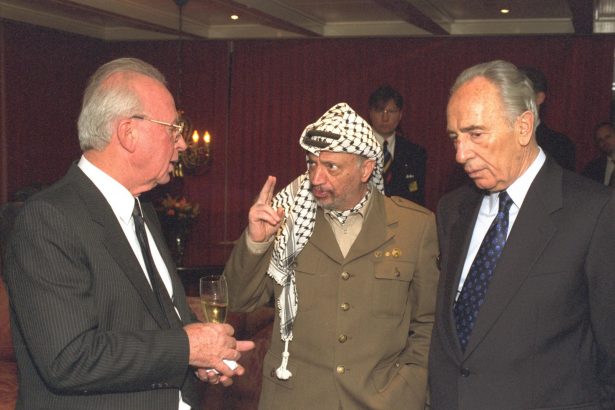

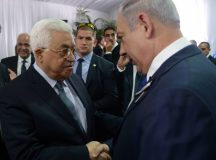
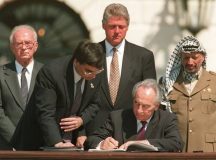
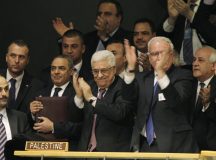
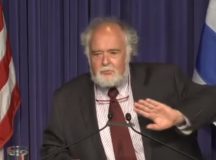
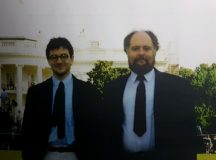































I am an Israeli who longs for peace but also a realist. Hirshfeld’s suggestions are based on false optimism, if not fantasies. The best we can strive for is for the center in Israel – still the majority to make its voice more clearly heard and to leave open the hope that some kind of negotiations can be held in the future. As a former American, I follow the American political situation closely and believe there will be less and less support for Israel among most Democrats. Anti-Semitism will grow on the right and on the left. We must strive to uphold our values and defend the vision of Israel as both a Jewish state and a democracy but Oslo is dead and we cant live with mushy, unrealistic theories